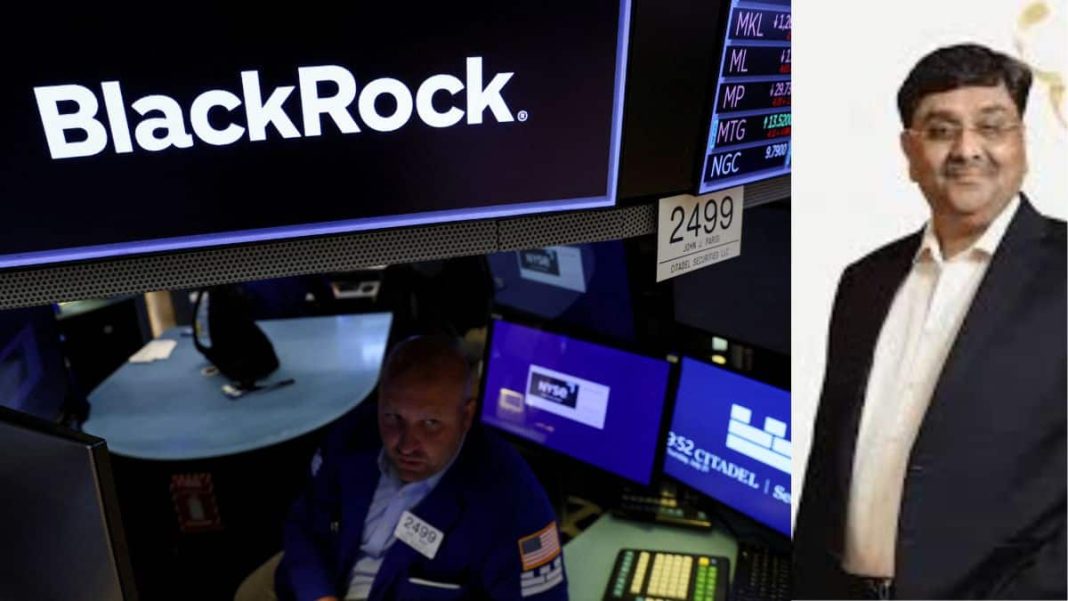Key Takeaways
- Indian-origin CEO Bankim Brahmbhatt accused of $500M loan fraud against BlackRock’s HPS Investment Partners
- Companies allegedly used fake invoices and non-existent receivables to secure massive loans
- Brahmbhatt and his firms filed for bankruptcy in August 2025 amid investigation
- Case exposes vulnerabilities in private credit market worth trillions globally
Indian-origin telecom executive Bankim Brahmbhatt stands accused of orchestrating a massive $500 million loan fraud that deceived BlackRock’s private-credit arm, HPS Investment Partners. Court documents reveal his companies allegedly fabricated invoices and fake receivables to secure substantial loans before filing for bankruptcy protection.
The Alleged Fraud Scheme
According to a lawsuit filed in August, Brahmbhatt used his telecommunications firms—Broadband Telecom and Bridgevoice, both owned through the Bankai Group—to obtain hundreds of millions in loans from private-credit lenders led by HPS Investment Partners.
The scheme involved creating fake customer accounts, falsifying receivables, and forging contracts used as collateral. His companies presented invoices showing apparent payments due from global telecom operators that later proved non-existent.
“Brahmbhatt created an elaborate balance sheet of assets that existed only on paper,” lenders’ lawyers stated in their complaint.
Investigations uncovered forged emails and fake customer correspondence dating back to 2018, used to make companies appear financially sound for large-scale financing.
Financial Exposure and Key Players
The lending chain began in September 2020 when HPS Investment Partners extended its first credit line to Brahmbhatt’s affiliated firms. Exposure grew to approximately $385 million by early 2021 and reached around $430 million by August 2024.
French banking group BNP Paribas financed nearly half these loans through two credit funds managed by HPS. The arrangement involved interconnected entities including Carriox Capital, Carriox Capital II, and BB Capital SPV, allegedly used to move funds between Brahmbhatt’s telecom companies.
Investigation Timeline and Disappearance
The first irregularities surfaced in July when an HPS employee noticed inconsistencies in email communications supposedly from Carriox customers. When HPS officials contacted Brahmbhatt for clarification, he allegedly reassured them about minor discrepancies before ceasing communication.
HPS staff visited his Garden City, New York office in July, finding it locked and empty. Subsequent visits yielded similar results. Reporters and creditors attempting contact at his residential address found no response, with luxury vehicles parked in the driveway and unopened packages suggesting prolonged absence.
Bankruptcy Filings and Current Status
After the alleged fraud emerged, several Brahmbhatt entities sought Chapter 11 bankruptcy protection, including Broadband Telecom, Bridgevoice, Carriox Capital, and Carriox Capital II. Brahmbhatt filed for personal bankruptcy on August 12, 2025, declaring liabilities exceeding half a billion dollars.
HPS Investment Partners claims lenders were deceived into providing loans secured by “non-existent revenue streams” and “artificially created receivables.” Plaintiffs allege some funds were diverted to offshore accounts in India and Mauritius.
About Bankim Brahmbhatt
Despite operating at significant scale, verified information about Brahmbhatt remains scarce. Identified as President and CEO of Bankai Group, he reportedly has over 30 years in telecommunications. His LinkedIn profile and other online presence have been deleted since the case emerged.
HPS officials suspect Brahmbhatt may have left the United States for India after July. His Garden City office remains closed, with company contacts unanswered for months. Brahmbhatt’s legal counsel denies all accusations, calling the lawsuit “unfounded.”
Broader Implications for Private Credit
This case highlights transparency and risk management concerns in the rapidly expanding private-credit industry, now a multi-trillion-dollar global market. Unlike traditional bank loans, private-credit financing often relies on receivables and business assets without thorough third-party verification.
Financial experts note the Brahmbhatt case exposes system vulnerabilities, particularly as lenders compete to fund mid-sized firms lacking traditional credit histories. For BlackRock, which recently acquired HPS Investment Partners, this represents an early test of private credit risk controls.
Next Steps and Recovery Prospects
Bankai Group’s New York headquarters appears deserted, with nameplates remaining but no operational activity. Bankruptcy filings indicate companies seek reorganization, though recovery prospects seem uncertain given many assets are deemed “unverifiable” or “non-existent.”
The lenders’ lawsuit accuses Brahmbhatt and associated entities of deliberate misrepresentation, fraudulent inducement, and conversion of loan proceeds. If proven, charges could bring significant civil penalties and potential criminal proceedings under US financial laws.
No criminal indictment has been publicly announced. Bankruptcy and recovery processes may take years due to international elements and multiple financial jurisdictions involved. The case has triggered internal reviews at BlackRock and BNP Paribas amid calls for tighter private-credit transaction controls.






